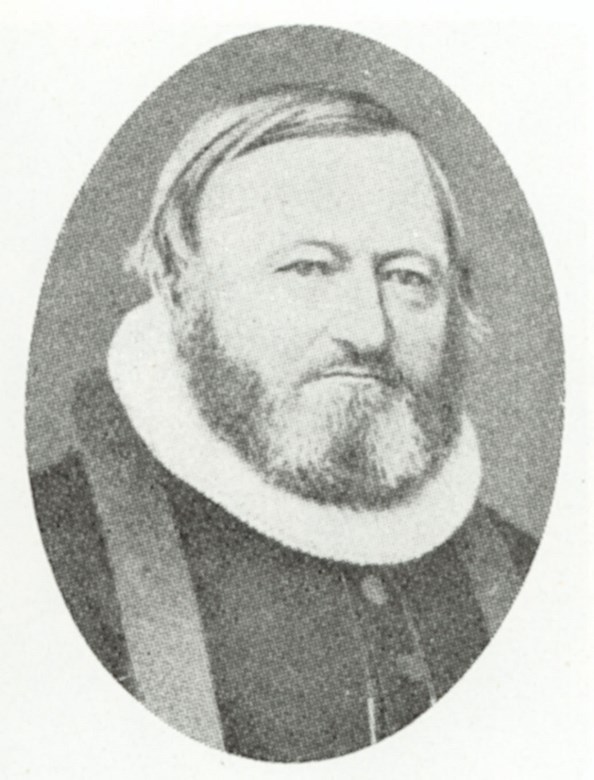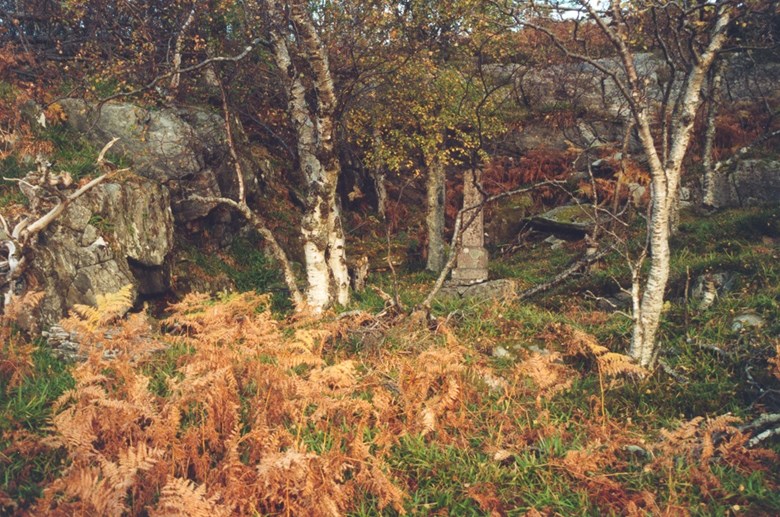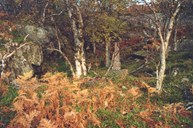The vicar who planted a lasting memorial of himself
Johan Daniel Stub Landmark was born in Fjaler in 1820. He became vicar at Selje in 1875, and died there in 1882. He was married to Elisabeth Laurense Rein, daughter of the vicar/poet and the "Eidsvoll man" (representative at the first constitutional assembly in 1814) Jonas Rein. Landmark published a number of textbooks in arithmetic and orthography. At Selje he created a lasting memorial after himself in 1876 when he planted a forest on the treeless island of Ersholmen. This became a good test of afforrestation in a harsh coastal climate.

Ersholmen and the afforestation
Ersholmen is exposed to strong winds from practically all directions, and the breakers may wash far up on the small island. The soil was very acid and waterlogged, and, consequently, the land first had to be drained by means of ditches before any planting could take place. Afterwards the following tree species were planted: 500 mugo pine, 500 Scots pine, 200 white spruce, 100 Norway spruce, 400 larch, 24 ash, 24 black alder, and 12 oak trees. In addition seeds were sown of black alder, birch, Norway maple, mountain ash, and Norwegian whitebeam. The forest grew nicely, and for a while trees were felled on the island of Ersholmen.
The New Year's hurricane in 1991
As the forest became higher and denser, it gave the mainland good shelter against the wind. For more than 100 years most of the trees weathered the storms, but the forest took a severe beating during the New Year's hurricane in 1991. Even today we can see tangled-up trees and roots all over the area, and from the mainland we can clearly see that the forest has become much more sparse.
The memorial stone at Ersholmen
The Forest Service erected a memorial stone at Ersholmen to commemorate the vicar Landmark. The two-metre-high stone is located in a copse of birches down by the seaside.
The following text is carved into the stone:
Johan Daniel Stub Landmark
Vicar at Selø (sic)
1875 - 1882His mother's bosom he wanted to cover
It is a lovely thought
Henr. Wergeland




